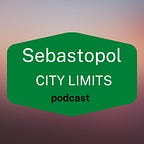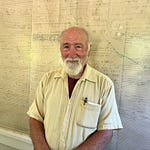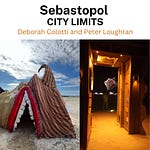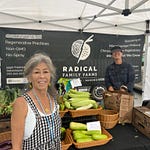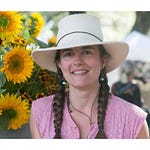Stephen Zollman joins Dale Dougherty to talk about running for City Council, getting the most votes in the election and then being sworn on December 6th. He talks about his work as a public defender in San Francisco and as a family law lawyer in Sonoma County. His decision to run for office was motivated by a desire to see more diverse voices in elected office and also to be one of those who can represent more diverse voices. He credits his winning the election to having a strong team supporting him. He is proud of his DIY campaign signs, a decision that was driven by necessity as well as environmental reasons. He’d like others to realize that they don’t need a lot of money to run for office. Zollman is also proud to be a member of the Green Party.
He had no idea how well he’d do in the election but getting the most votes was something of a surprise. He says it feels truly humbling to serve in the City Councile and follow in the footsteps of the three retiring City Council members.
As a member of the Library board in the past, Zollman talks about plans for eventually expanding the library, which have been in the works for a while but are dependent on priority setting by the Sonoma County Library system.
He believes Sebastopol can become a more diverse community by creating more opportunities for its youth, which could start with helping them find jobs and internships in local businesses. He dispels a rumor that has circulated during the election that he is involved in the lawsuit against the city for its limitations on where the homeless can park or camp. He sees that maintaining city services while balancing the budget will be the big challenge of the new council.
This conversation took place on Tuesday afternoon December 20, 2022.
Transcript
Dale: I'd like to welcome Steven Zollman to Sebastopol City Limits, a podcast for Sebastopol Times. Steven is a new member of the city council in Sebastopol, and he was the leading vote getter in the recent election for the city council. Congratulations, Steven.
Stephen: Thank you. Thank you very much. And I'm honored to be here.
Dale: Tell me a little bit, where'd you grow up?
Stephen: Grew up in the Midwest. Yeah, a little bit on the outside of Chicago and Northwest Indiana.
Dale: And what brought you to California?
Stephen: Oh, a lot of different reasons. Health concerns of a friend and just wanting to experience something new and different. And California's certainly new and different. San Francisco Bay area is definitely new and different for sure.
Dale: And and you lived in San Francisco for a while and you worked there, you became an attorney.
Stephen: Yeah, definitely became an attorney in San Francisco. Was very fortunate to be a public defender there for almost 12 years.
Dale: How was that? That's a tough job.
Stephen: Yes, it's tough, but it's also very fulfilling. I was very fortunate to represent our youth and their families for eight and a half of those 12 years, and it was very rewarding when you're able to advocate and secure services for very marginalized youth, mostly BIPOC youth, and see them grow as a result of receiving the services and receive services instead of what traditionally is seen as punishment. Their brains are still developing and they're still learning. And as a community that was a very powerful thing. So I'm very fortunate to have been a part of that process.
Dale: Finding alternate routes for them instead of going to jail or other places. You've been doing some of that work up in Sonoma County.
Stephen: As far as with representing youth, it's more in the family law arena. Courts will appoint attorneys to represent youth in high conflict divorce matters where the courts need to have an independent observation of what is in the youth's best interest.
So that's when attorneys like myself get appointed to let the court know what from that attorney's perspective, what is in the child's best interest. And so that's some of the work that I've done up here.
Dale: Does that touch on things like foster care and other?
Stephen: It definitely can. There can be a lot of crossover within the different systems. When families are very stressed out and very traumatized, it may not always bring out the best of them especially when it's relating to their children. So they might have interactions with various systems and wherever they're at, that's where we go in order to figure out from their perspective what they're able to offer their children and how they can prioritize their best interests above everything else that's going on.
Dale: Has Covid presented a particularly tough period of and challenges?
Stephen: It definitely has. If there were gaps in services, which there has always been gaps in services in these various systems, COVID has definitely hit the most marginalized even harder when they're barely able to keep housing and as a result, they're barely able to keep in contact with their service providers. It's very challenging. But we do the best we can with what resources there are . .
Dale: What motivated you to run for office in Sebastopol?
Stephen: There were a lot of different reasons. One, I wanted to see that there were a lot of diverse voices running and hopefully representing diverse voices within our community.
I had always thought about running, and when it got closer and closer, I was like maybe now is the time to step in. And I felt very fortunate to be able to have a platform to run on. Some of the issues that I care about and I feel very honored that apparently it resonated with a few folks anyway.
And even the messages that I was trying to put out there that may not have resonated with everyone, hopefully there'll be enough room to still have dialogue about those issues. Maybe that's where it'll end, which is just dialogue. But even if it ends with that, it's still worth it just to have dialogue on those issues, to see where we're at compared to other cities and quite honestly other states and other countries.
Dale: What did you learn that you didn't expect or what surprised you?
Stephen: I think it was just like I had been part of other uh, campaigns before but hitting the ground running and realizing the fact that there are so many moving pieces and that they all need to be operational at the same time.
As far as like getting the message out there and then the signs, and then the letters, and then the endorsements, and it was like, it was a lot. But I felt very fortunate the fact that I had a very tremendous campaign team and with all that and support from a lot of different corners.
It all turned out and I just feel very honored that a lot of people dug deep and they listened to the messages and they read various things and the cast support, and now all I have to do is just fulfill that and and make sure that they feel like when they cast their vote that they cast their vote for the right person.
Dale: I do think when you mentioned your team that uh, building an effective team behind you to get them multiplying your impact out there must have been very important.
Stephen: Yes, absolutely. Woody, June, Tim, I've got my campaign finance person and multiple other people from different segments of the community.
It just would not have been possible right, without them. Because they have their connections and it was a lot of word of mouth. And I think the signs actually, quite honestly, I mean it was a combination of Woody and June and wanting to make sure we were taking signs that were going to be headed towards the dump and we gave them one more life.
And the paint was all from the recycling bin anyway. And it got all one more life, again. They were unique and I think they stood out.
Dale: Was that your idea?
Stephen: No, it's, I think it was just born out of practicality, the fact that we didn't have money and we wanted to be mindful of the environment. It just was a way also as it turned out for us to stand apart and it just showed the fact that we are grassroots and they looked very grassroots from the very beginning.
Dale: You raised the least amount of money of the candidates. I think should be a message to get out there to other people thinking of running for office that you can do it without having the bank behind you.
Stephen: I hope it does and I hope it does for other diverse candidates. And diversity other than just race and ethnicity and gender, I mean from socioeconomic status because I'm not, I'm certainly not rolling in dough. And I'm hoping that it sends a message that other people that are still working can still consider running and still keep their employment because that's what I think this job is supposed to be. It's supposed to be about giving back, but also still being able to earn a livelihood while you still do it. It's not supposed to be one or the other to attract diverse candidates that will be leaders for our city.
Dale: How did you first get involved in politics?
Stephen: Oh, from a young age? I don't know. I think it was probably having grown up in the Midwest where you just didn't see a lot of diversity and then figuring out the fact that I was gay, where it was an area where I was not safe to be gay. And you learn that early on. And then you bond with a lot of other people where it was not safe for them to be their full true self. And you just figure out it's like, this does not seem quite right. So what are we gonna do and how are we gonna build mass? And how are we gonna correct the situation?
And the only way you're gonna do it is to think strategically and build alliances and move equity forward.
Dale: Good. How did you get involved with the Green Party?
Stephen: Yeah, absolutely. And I was very honored in the fact that people have a lot of choices but the Green Party and the 10 pillars, it's just like that basically is it for me? If you really value the environment, it's like, it's all there. And I'm hoping that I'm not an anomaly. From what I've heard in this Sebastopol area, there were quite a few green party people and at one point there was a majority of them on the council.
So I'm hoping that it's just brings to life again, where it's yes, we can really, truly honor our environment and whatever we do, we have to honor our planet. And give thanks for that. The rest of it can get filled in between the lines there.
Dale: When did it hit you that you'd won? Like when did you think this is really happening now?
Stephen: I don't know. It was very like, wow. When the initial results came out, I was like, wow. It was like I looked and quite honestly, I didn't really know a whole lot. I clicked on and I was like, wow. Second.
I was like, wow, that's very humbling. And then as it went on, I just remained second. I was like, wow, that's very humbling. And then all of a sudden it was like, it rolled around. I was like, wow. First. I'm like, that probably won't last long. And then it just trickled in. I was like, wow, okay. I guess this is really gonna happen.
Yeah, it was pretty exciting.
Dale: You were sworn in like last week?
Stephen: December 6th. Yeah.
Dale: How did that feel?
Stephen: Truly humbling. I'll tell you, when you raise your right hand, it's just... The whole night was very humbling to listen to three people who had dedicated substantial chunks of their life, saying thank you and receiving thanks, it was very humbling.
And then to be sworn in after them was very humbling and it was a very humbling night. I have to say. So I hope that, us newer people can fill the shoes of our predecessors. I hope so.
Dale: So what's it like coming up to speed on all of these things? You probably have had a lot of meetings with city staff and such.
Stephen: It's definitely a lot to, definitely a lot to learn. As far as like kind of the mechanics, I'm happy to say that's just like the little bit of time that I spent two years that I spent as our appointee to the library commission, as far as the procedure part of it, definitely seemed very familiar.
But as far as just a refresher on the substances, which is the Brown Act and all of that, I was very appreciative of the staff to get up to speed and we're getting more training.
Dale: Pretty soon there are committee choices coming up and things like that.
Stephen: Indeed.
Dale: Tip us off on what you are interested in
Stephen: I'm hoping that it's not gonna be too much of a surprise. You are already asked me about like the Green Party affiliation. The environment is very important to me. So those that are tied into the environment I'm definitely gonna form my hat in the ring. Those that are healthcare related given my master's in health law I'm definitely gonna be interested in those. Quite honestly, I'd be humble to represent being a liaison to any of our nonprofits. I've served on a number of our local boards here. I'm hoping the library related ones, since I'm still on the Lantern board would be a natural transition. But it's gonna be up to the process.
Dale: Let me just ask you, because you brought up the library. What's the status of maybe, building a new library or what, whatever's going on there.
Stephen: I am proud to say the fact that it's just like that the library's administration now has a whole fundraising scheme and they are prioritizing certain buildings and I think that they made a very good choice with the Roseland library because for one, there many years that Roseland had a very substandard, to say the least library for its BIPOC community. And they are prioritizing getting a new permanent- they have a newer interim- branch, keying all the capital campaign fundraising for a newer permanent branch for that library. And then they're going to have a master plan, and I'm pretty sure that Sebastopol, our branch will be high up there given the amount of services that it provides on an annual basis that we will be one of those buildings because clearly our services outmatch the square footage of the building. And I really do like the approach, the fact that they're gonna do it on an equitable basis, based upon need, and it'll be done on a system line basis. And they're gonna be doing the capital fundraising and it's gonna be due to a lot of our own efforts locally as well, because the system can only raise so much money.
So according to the JPA, we too are going to be needing to step up within the confines of Sebastopol to also do some heavy lifting on our own to see that we get a bigger library as well.
Dale: Is there a specific plan?
Stephen: The Lantern library nonprofit board itself has come up with, over the years, a scheme. We had an engineer come out and it seemed like it was not going to be sustainable to have a second floor built up, but it would be sustainable to build out into the parking lot area. Patrick Slayter and Sarah Gurney actually, couple years now, were out in the parking lot area talking about how there could be an expansion to work with the Senior Center, to have like a connection between those buildings. If there were any sort of parking lot infringement that you could dig underneath the existing parking lot to make up for that parking lot, spots that would be taken away. It seemed very exciting and I think very doable.
I think we have a plan to because I think for a lot of the families that have children that, they have various conditions that they can't necessarily control how their behavior is, and to have them come into the library and exhibit that behavior, it might be very disturbing to other people, but they still have a right to use the library space.
So to be able to make accommodations for those type of disabilities is an important thing to take into consideration.
Dale: Sebastopol doesn't have historically a very diverse population. And then you have issues where housing, particularly affordable housing has trouble getting going. If you're a believer in diversity, what can we do to help create a more diverse Sebastopol?
Stephen: Yeah, I think that is always the question, and I think it starts with our youth. During the campaign I consistently stressed the fact that we have diversity within our own confines between the hours of 8 and 2:30 and then they leave. I oftentimes wonder why that is. And why it is that we can't find ways to engage them, our youth from both schools, quite honestly. And I think that there are ways that we can. I was in some meeting where, there was talk about having internships not necessarily paid, but as far as being able to earn credit to be able to work with our businesses, our downtown businesses, to be able to utilize the skills that our youth have, that our shop owners may not have, to be able to create a win-win situation.
And as far as like affordable housing, that library plan that Patrick Slayter and Sarah Gurney had, that sort of reconfiguration of that square block that's city owned, part of that could also encompass like affordable housing in order to make it possible for those teams that are now going to graduate and especially diverse teens. Then maybe they could segue from the skills that they developed working with our small business owners to help their businesses. Then they could segue into a job, then they'll segue into affordable housing. Then we could actually keep that diversity and then mentor them so that we would have more diverse candidates when we're talking years down the road and elections down the road.
So diversity is definitely important and was very fortunate to have council member Diana Rich invite me to an assembly at Analy. Our youth just had one talking about diversity and inclusion and reached out to them and they know that if they're a youth that are interested, I'd be definitely delighted to work with them, to give them experience, to know what it's like to work with an elected and to share whatever I can and empower them to let them know it is possible.
Dale: The other side is the schools are suffering from declining enrollment. And to the degree that Sebastopol can welcome families here, diverse families particularly, to take root here, we have a need for more kids in our schools and people shopping downtown and all that kind of thing.
Stephen: Absolutely.
Dale: Let me ask you. A rumor that went around, it relates to the homeless, that you are part of a lawsuit against the city.
Stephen: Oh, yes. And that was part of the thing too. It's just I don't know, things that sort of get floated around by candidates and I'm, but
Dale: I heard it. After the election. I gotta ask you this.
Stephen: Yeah it it definitely is not true. What the part of it, it is true is that for a brief amount of time, I did work for CRLA, that they were my employer.
But the lawsuit that has now been brought against the city, that definitely came much after the time that I've stopped working for CRLA.
Dale: CRLA is what?
Stephen: California Rural Legal Assistance. They are one of the entities that has now brought suit against the city along with the ACLU et cetera.
And yes, that all came about much after I left, so I had no idea that was coming. Don't have any idea of what the contents of their suit is about. So no, the things that get floated around on nextdoor cetera.
I could definitively say that no, I'm definitely not a part of any suit that's now pending against the city.
Dale: Can I ask you, do you think you are the first gay council member that we've had?
Stephen: No, definitely not. Okay. Definitely not.
That was the reason why I didn't, make it a primary part of the campaign. I mentioned it a few different times in different circles, but it's because now we're coming into 2023, being gay, lesbian, bisexual, transgender, it's like it should not be that big a thing when it comes to diversity. I didn't really want to make that a big solo feature of the campaign. Definitely not the first.
Dale: Looking forward to 2023, there's definitely the fire department issue. What are some of the things that you're looking at that you're you're gonna have to be dealing with? One is the budget, obviously?
Stephen: Yeah. Yeah. Absolutely the budget. Because I think we all want various services and either initial services or more services, et cetera. But the bottom line is we've been running in a direction that Probably should not be running in. And then, yes, there are constant needs that we need to fill and those are pretty set.
Yes the situation with our fire um, And I'm quite honestly glad, as I said during the campaign, that there's been an independent consulting group that's been retained. And I'm quite honestly looking forward to the report. And once the report is put out there, I'm looking forward to continued feedback from the community about how it all.
Dale: That report was promised in November originally. When is it supposed to come?
Stephen: I have heard various stages where it might be coming out towards the middle end of January is what I've been hearing. Could be wrong, so.
Dale: The budget is going to be one of the real challenges for the new council members. The other is potentially, as you mentioned, the kind of loss of experience in the collective body.
Stephen: One of the good things that somebody pointed out the fact that now that they're off council, I think it was Omar Figueroa last December 6th said that it's just like that they are now resources. So we can tap them. And so I think that it's like all of us are in good standing with them. So I think that's just like that which one of us wouldn't tap their collective knowledge from the years gone by.
Dale: Not to mention that new blood is a good thing in itself. Things that may not have happened in the past can be looked at again. I wanna wish you well in your term, as it begins. And I really appreciate you taking the time to talk to us today.
Stephen: Thank you. And thank you for having me. And thank you for all that you continue to do for the community.
Dale: Thank you.

